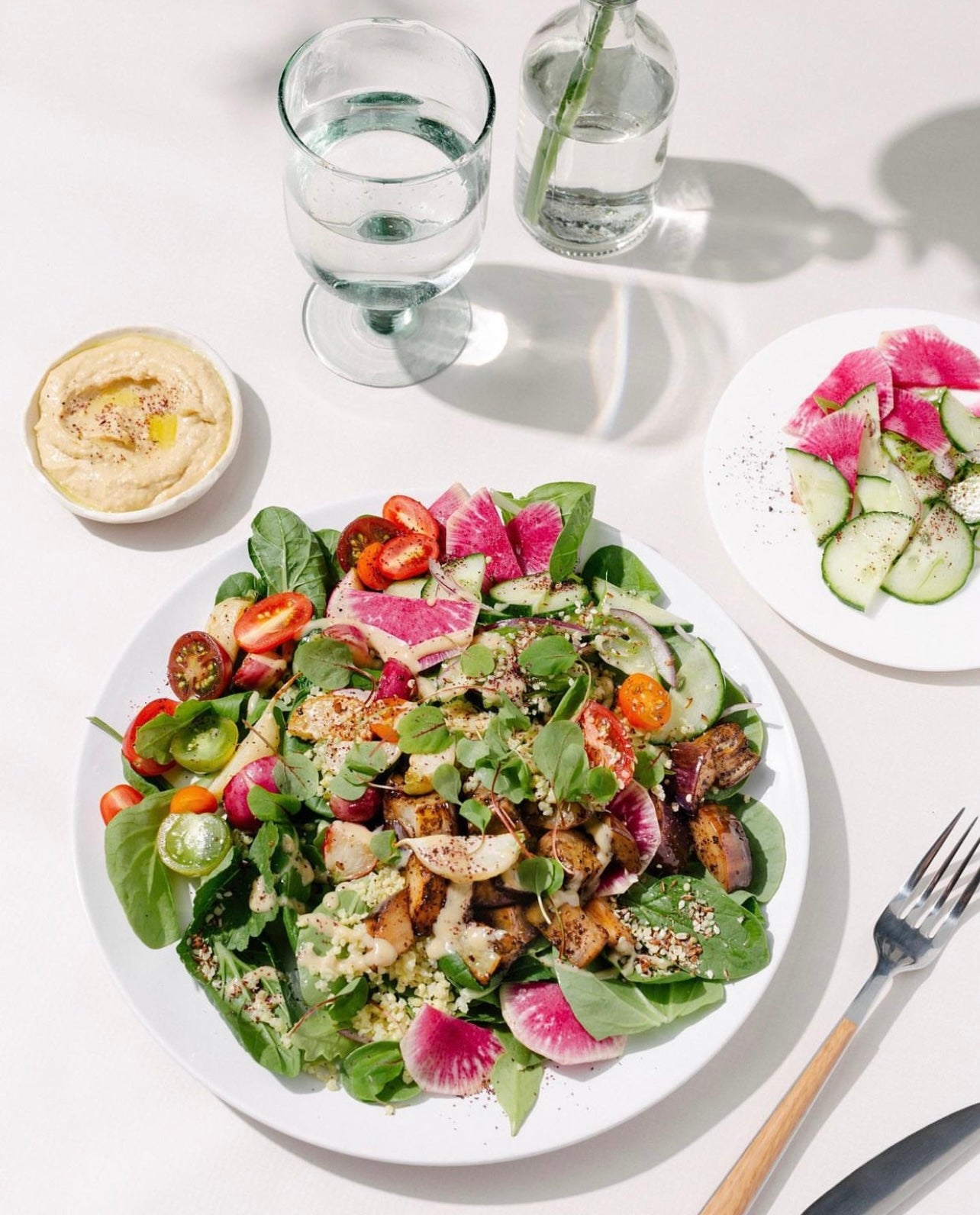Poor digestion is a far too common issue that is often only put down to what you are eating. But it’s safe to say that it’s not just about what you’re eating but how.
Eating on the go, overeating and eating whilst distracted or stressed can wreak havoc on our digestion causing the physical symptoms many of us are all too familiar with such as bloating, heartburn, gas, constipation and low energy.
Mindful eating practices are the ‘how to’ in optimising your digestion through practical changes. By incorporating mindful eating strategies into your life this can create awareness of the situations in which you can prevent stressful eating environments and better your digestion.
Stop the Stress and Digest
Functional gastrointestinal disorders (FGID), such as IBS, have been linked to a stressful environment whilst eating. This may be eating your lunch at your desk whilst working - guilty – or slamming down a snack before heading out the door. Since stress is obviously inevitable, dedicate mealtimes to make a date with yourself; take your food outside or somewhere away from your work desk, hold your belly and take 3 deep diaphragmatic breaths. This will help activate your parasympathetic nervous system, aka our rest and digest state. Shift your attention to the food and enjoy it!
Digestion Starts in the Mouth
How many times do you chew before swallowing? Chewing is such a subconscious action that we forget how important it is for our digestion. When we chew our food mixes with our saliva which contains salivary amylase – a digestive enzyme that is vital for breaking down large sugar molecules into smaller sugars. It is recommended that chewing mouthfuls around 30 times will extend the time amylase can breakdown your food making it easier to digest in the gut. Chewing is also a signal to the gut that food is coming stimulating the release of enzymes and acids that aid digestion.
Eat your Bitters
There are many plant foods that contain digestion-enhancing properties, especially those that taste bitter. Bitter foods, such as dandelion greens and arugula, effect digestion through increasing digestive secretions, nerve stimulation and circulation in the gut which enhance digestive activity. Sipping on green tea is also a traditional bitter herb used in many cultures to aid digestion. Serving your more carbohydrate rich meals like pasta with a side of bitter greens is an easy hack for promoting digestion.
Take a Walk
The post meal bloat is among the most common digestive complaints. Mild physical activity after a meal - such as a short 10-minute walk, stretching or watering the garden - is associated with improving bloat and digestive symptoms in both healthy individuals and those that suffer from bloating. Taking a short walk following a meal may also be as effective as taking medications that enhance digestion. It’s also super beneficial for keeping our blood sugar stable so win-win!
Put down your phone, don’t rush your meal and listen to your gut when it’s had enough.
Cherpak C. E. (2019). Mindful Eating: A Review Of How The Stress-Digestion-Mindfulness Triad May Modulate And Improve Gastrointestinal And Digestive Function. Integrative medicine (Encinitas, Calif.), 18(4), 48–53. https://www.ncbi.nlm.nih.gov/pmc/articles/PMC7219460/
Peyrot des Gachons, C., & Breslin, P. A. (2016). Salivary Amylase: Digestion and Metabolic Syndrome. Current diabetes reports, 16(10), 102. https://doi.org/10.1007/s11892-016-0794-7
McMullen, M. K., Whitehouse, J. M., & Towell, A. (2015). Bitters: Time for a New Paradigm. Evidence-based complementary and alternative medicine : eCAM, 2015, 670504. https://doi.org/10.1155/2015/670504
Hosseini-Asl, M. K., Taherifard, E., & Mousavi, M. R. (2021). The effect of a short-term physical activity after meals on gastrointestinal symptoms in individuals with functional abdominal bloating: a randomized clinical trial. Gastroenterology and hepatology from bed to bench, 14(1), 59–66. https://pubmed.ncbi.nlm.nih.gov/33868611/




